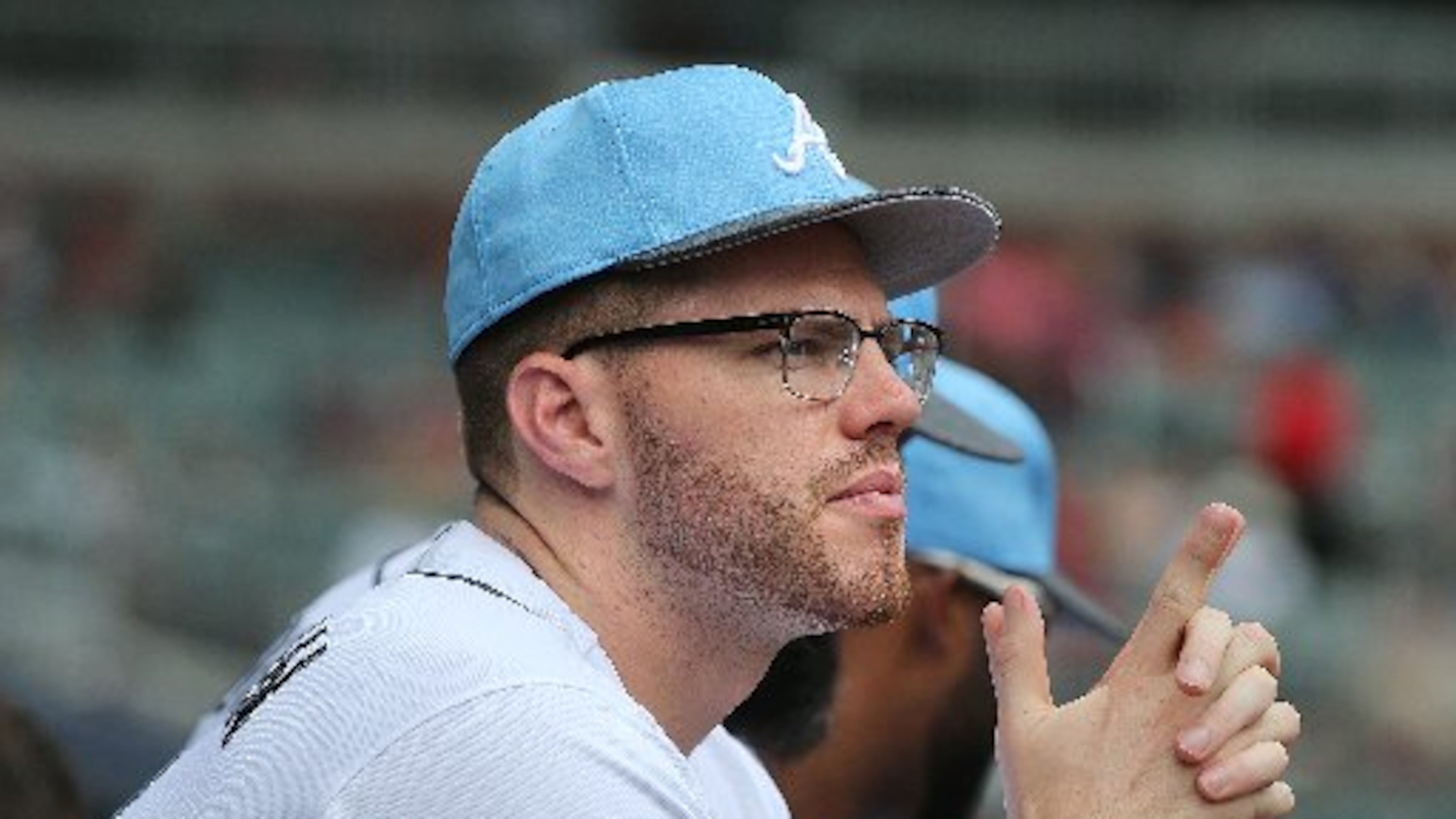History, numbers say third base will be hard for Freddie Freeman

Lots of major league players successfully moved from another position to first base. Not many first basemen moved to third.
“I can’t think of any, really,” Braves manager Brian Snitker said Wednesday.
The Braves are going to try it with Freddie Freeman. He said he's "100 percent go" on playing third base when he returns from the DL next month so that Matt Adams can stay in the lineup as the first baseman.
There’s a reason why Snitker, a baseball lifer, couldn’t immediately think of any first basemen moving to another position. Sabermetrics and conventional wisdom agree that first base is the easiest position to field.
That's why sluggers who are considered too big, too clumsy or too unskilled to play elsewhere end up at first. First base also is where good hitters are stashed when they get too old or injured to play the other positions.
Those circumstances don’t describe Freeman, who is 27. He’s a big man (6-5, 220) but he moves fluidly at first base. Freeman doesn’t get to show off his arm much but it looks plenty strong when he does.
Yet Freeman will be making a difficult (albeit, I’m guessing, temporary) position switch. Ask Chipper Jones, who played 17,105 2/3 innings at third base for the Braves.
“He just told me it was going to be tough to do moving to third, and I said I understand that,” Freeman said.
Sabemetrics say the same thing.
A couple of years ago Jeff Zimmerman, writing for Hardball Times, reexamined the defensive spectrum, which tries to adjust positions based on the difficulty of playing them. From 2002 to 2014 third base was the most common position for first basemen to move to, which makes sense because it's the next-easiest position on the defensive spectrum.
Zimmerman found that former first basemen played 52,190 innings at third base during that time period and cost their teams 6.9 runs per 162 innings. Only two defensive switches cost teams more runs: first base to shortstop (11.2 runs lost per 162 innings over a total of 7,726 innings) and left field to center field (8.8 per 162 innings over a total of 102,871 innings). Those Sabermetrics numbers aren't gospel--they are based on advanced defensive statistics that have improved but have flaws--yet I don't think it strains reason to believe that most first baseman are going to have trouble playing third.
I'm not saying Freeman can't do it I've already mentioned the reasons why Freeman may be better suited to make the shift than the typical lumbering first baseman. Moving him to third is a better idea than sending Adams to the outfield , which would mean moving him two spots in difficultly on the defensive spectrum.
But there’s no doubt that Freeman is going to have to make a position change that isn't easy. That's why, historically, it's rarely worked out.
Related headlines

